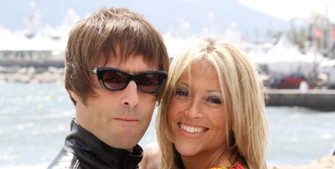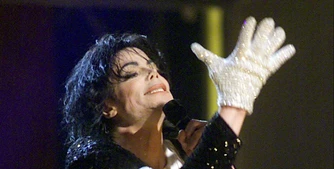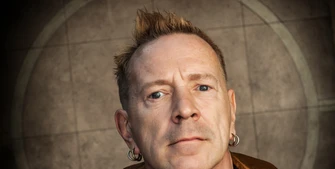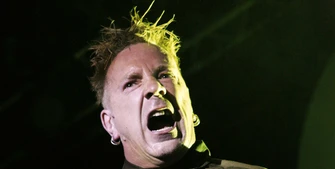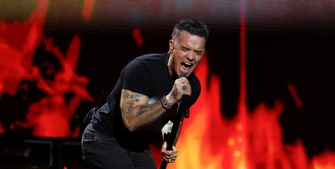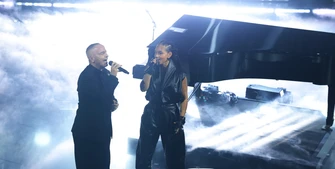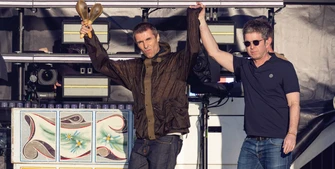Interview: Britpop star Sonya Madan on why Echobelly were wilder than Oasis in the '90s and 30 years of On
Echobelly star Sonya Madan reflects on 30 years of On, being wilder than Oasis, and comparisons to Sleeper and Elastica.
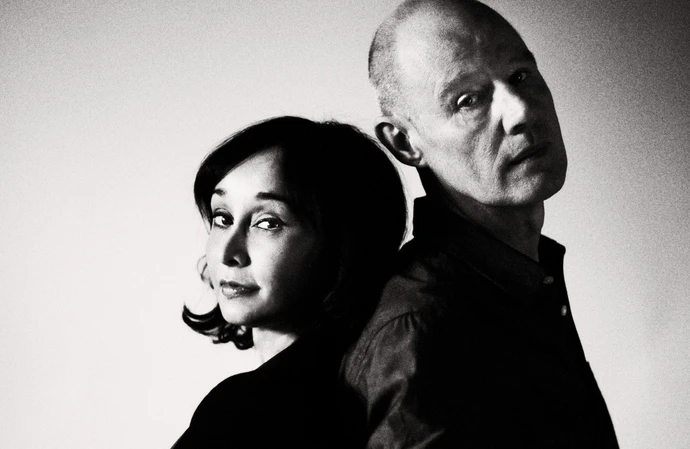
As Britpop nostalgia surges with Oasis well and truly back, Echobelly frontwoman Sonya Madan looks back on the band’s riotous rise — from out-wilding the Gallaghers in the '90s to marking 30 years of their Top 5 album On with a tour this October, and a legal wangle that has caused havoc with their "remarkable" new album.
So, 30 years since On. Does it feel like that?
What the f*** happened? Does it feel that long? Yes, and no. It's weird. No, it doesn't. It's like I went to sleep and I woke up 10 years later.
Some things really remind you - when you talk to your niece or nephew and you talk about something and they have no understanding or concept of pre-social media pre-mobile, or pre-smart phones.
So you’re going to tour the record later in the year. Are you looking forward to it?
I am. There’s a little bit of trepidation as well because we have been touring relatively consistently since 2017 because we have other albums that we recorded over the years. We play a wide array but this time it's going, you know, 100% back to On, playing in its entirety so it's really exciting but some of the songs haven't actually been aired for that time.
I have to revisit them and relearn them. All the memories come out with certain song as well. I’m having to rediscover the whole thing myself to a certain extent.
How has the meaning of the songs changed for you since then?
I would say that at that time I was quite a what I would consider a feisty and self-exploratory lyricist. Nowadays, I feel that lyrics belong to the listener and It's really important for someone to be free to interpret something because it's art too.
It's considered art, I suppose, and so the interpretation for me is valid. But at the time, I think I was very much projecting my demons and views about women's rights, and all sorts of other issues that I didn't think had ever been discussed.
And I was very aware that I wasn't writing the average ‘I love you baby’ song. Not that there's anything wrong with that but you know, it wasn't what I was interested in at the time.
Was it frustrating being lumped in with Sleeper, Elastica – all the female fronted bands at the time?
I think lots of the lots of the male bands were lumped in as well, as you know, white male. Britpop acts as well.
So to tell you the truth, I think it's a bit of a lazy accusation. To a certain extent, there is some merit in it, but I think that there were more women then fronting and being in bands. And um, there are plenty of us.
Tell you the truth I don’t think it was an issue. I think people like to think of it as an issue now because it's so terribly trendy to talk about women's rights and it wasn’t back then. But at the same time, I don't personally believe in lifting someone up by putting someone else down.
Yeah, and in my experience, the boys in all the bands that I came across were really lovely and supportive and decent.
If there was difficulty it tended to come from a music press and supposedly intelligent people who should have known better.
But as far as camaraderie with other artists, of male artists, yeah, I had a really decent experience.”
Which current female bands do you rate?
I don't listen to music in that sense. It’s very difficult for me to be honest in that regard. I think you get two different types of people. I mean, I've done, for example, BBC Radio 6, and I sat next to another person who's an encyclopaedia about music and it, that's not what I do it for.
I'm very much my own, I would say, rather esoteric interests, I don’t really indulge in the pop music culture as much as many people my situation. So I'm just not equipped to answer that question.
What does Britpop mean to you?
Britpop for me, it's an amazing time for this country.
It was about self-expression and also exploring what it meant to be British at the time - without apologising for it.
It turned into pastiche. And it could be working class, Northerners, who felt ignored, it could be women, who wanted to pick up an instrument or sing about issues.
But it also encompassed, like, all interesting long-lasting movements, from say the 60s. 50s. I think it would encompass not just music but all forms of art, architecture, politics - it kind of spread its wings, so It's not just about music for me, that era was very much about the country, exploring itself and what it meant to be, whoever it was looking through their own eyes.
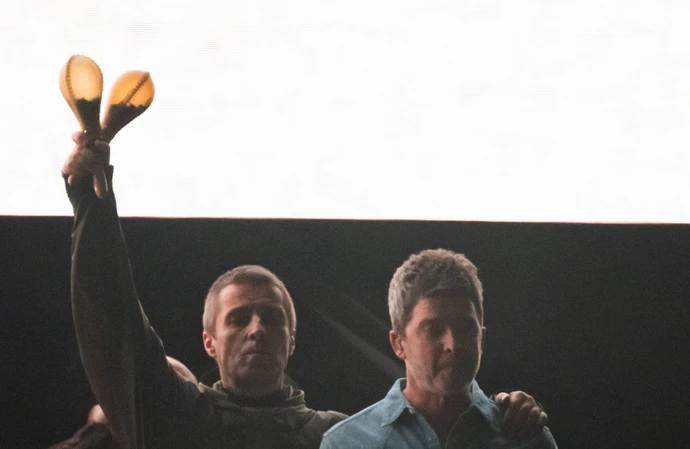
Obviously Oasis have got back together this summer. Will you be seeing them?
Uh no. I think that tickets were really, really hard to get, I could try and blag but I'm really, really happy for them and I think they've reawakened something in in the spirit of the country that goes far beyond just going out to play a gig.
Because there's something going on there. They represent a sense of joy and freedom. For a lot of people and it's authentic, it's real. And everybody seems to be blown away by the level of success they’ve achieved. Yeah, I'm so happy for them.
Did you cross paths much with them over the years?
Oh yeah, quite a lot in the early days. [Our record labels] were ostensibly funded by Sony. And we toured together in the early days, we went to America, not on tour together, but we were there, playing our early club shows [at the same time]
We did our first Glastonbury together. And we went to France and did actually tour with them and another band, an American band and it was really fun.
Was it sedate backstage or pretty wild?
I found Echobelly far more full on than they were to tell you the truth. I think they had – I’m going to be brutally honest here - they had press people who would take a 10% story and turn into 100 per cent story and everybody is still falling for it. Really everyone's falling for it.
But in in reality, they were not half as raucous as a lot of bands around them. And I know that as a fact because I was part of the scene so it's like the story has become far bigger.
Of course, we love a good story but there was a lot of drugs and alcohol around in those days. But you could tell the bands that were really caning it. Because they were grey and forgetful on stage and you could also see the ones that were living through this kind of whirlwind around them.
And I would say Oasis were reasonably focused and serious about their music and didn't do half as much as they've led people to believe.
Where would you put yourself on that scale?
There was a lot of partying going on in the band. The local drug dealer would drop stuff off. It was rife.
Yeah, I tried things,, but you really can't do both, not for long. You become a bit of a rock and roll casualty.
So how do you wind down after a gig now?
I have a glass of whisky, if I’m lucky or I'll have a glass of red wine before the show and then I'll finish it off onto the show, but that's about it.
What’s your fan base like these days – same fans or younger faces?
Yes, they've grown older with us but at the same time something interesting has been happening in the last handful of shows where I'm noticing a lot of young girls picking up on Echobelly, I suspect because of the lyrics. Because, you know, I've always been aware of women's rights haven't been shy to be vocal about them.
And I just think that Britpop is kind of fashionable again. So people are exploring and also parents are have brought their kids up on what they like, you know…
You’re working on a new album as well. Is that right?
The new album has a rock and roll story attached to it already. We're approached by a small independent label and we signed a one-off deal with them. It seems fine, seemed to be really nice, together people.
Went into RAK Studios to record with Danton Supple, who made the first Coldplay album, Patti Smith… We worked with him when he was starting out, he used to do our B sides, and we hadn’t seen each other for ages.
We recorded what we feel is a remarkable album. And then the manager or the studio and Danton's manager came in and said, ‘We haven't been paid by the label. So we can't give you the record.’
Basically, it ended up in the hands of the lawyers, we left because they were in breach of contract with us.
We removed them from our system. Yes, it was acrimonious. They turned out to be complete liars, very difficult. The thing is, the album has not been paid for but the studio was paid for. So it's a mess
It's a mess. Having talked to lawyers ourselves and it cost us money to go through the process. They don't own the album because if they're in breach of contract, they’re in breach of contract. So I suppose. We can claim rights to the album, they are our songs. And between us and the producer we can find a way to release it ourselves.
So hopefully it will be out next year with this rock and roll story attached to it. Wow. We just need to go through a bit more fine print with the lawyers first. Because if there's a hit, people will come back at you.
Echobelly On 30th Anniversary Tour dates:
OCTOBER
02nd Manchester – New Century Hall
03rd Leeds – Project House
04th Sheffield – Leadmill
09th Bath – Komedia
10th Coventry – HMV Empire
11th Oxford – O2 Academy
12th Southampton – Engine Rooms
16th London – Electric Ballroom
17th Brighton – Chalk
18th Swansea – Sin City
NOVEMBER
05th Newcastle – The Cluny
06th Glasgow – Oran Mor
07th Stoke – Sugarmill
08th Nottingham – The Level
Tickets for the tour are on sale here

